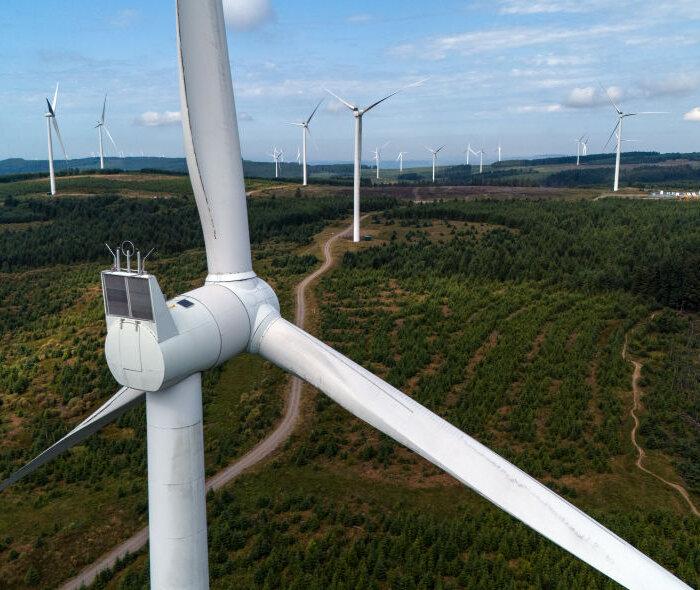Nature charities are urging the Scottish Government to refuse consent for one of the world’s largest offshore wind farms, warning it could kill and displace tens of thousands of seabirds.
They warn the Berwick Bank wind farm would be “catastrophic” for Scotland’s seabirds and call for developments in more “appropriate” locations.
Berwick Bank would have up to 307 turbines located in the outer Firth of Forth, around 25 miles off the Scottish coast near seabird sites like Bass Rock, St. Abb’s Head, and the Isle of May, which is home to puffins.
RSPB Scotland, the Marine Conservation Society, National Trust for Scotland, Scottish Wildlife Trust, and Scottish Seabird Centre have united to call for the development to be refused and have written to Scotland’s First Minister John Swinney.
SSE Renewables said it has amended the development designs to reduce, as much as practical, any potential risks to Scottish seabirds.
Anne McCall, director of RSPB Scotland, said: “Offshore wind has a key role in tackling the climate and nature emergency. We fully support well-sited wind farms which work with nature. But they are being held back by a major spanner in the works.
“Berwick Bank would be catastrophic for Scotland’s globally important seabirds. Its impacts are so damaging it is blocking plans for new, less-harmful wind farms.
“As the first minister said earlier this year, nature should be at the heart of climate action. Our message to the Scottish Government is clear: Refuse Berwick Bank to unlock the full potential of offshore wind while protecting our outstanding wildlife.”
The charities claim new offshore wind developments are being held back owing to their combined impacts with Berwick Bank on Scotland’s seabird populations, and suggest refusing it could open up opportunities for other such projects.
Berwick Bank has been awaiting a decision for two years after SSE Renewables submitted a planning application to the Scottish Government in late 2022.
The National Trust for Scotland (NTS) cares for St. Abb’s Head National Nature Reserve, which is home to around 45,000 seabirds during breeding season, including protected kittiwake, guillemot, razorbill, and shag species.
Diarmid Hearns, interim director of conservation and policy at NTS, said: “[Offshore wind] installations must be located with sensitivity to the very habitats we’re trying to protect from climate impacts—the proposed site for Berwick Bank is likely to cause high levels of ecological damage and severely impact the seabird colonies at St. Abb’s Head.
“We urge ministers to reject the proposal for Berwick Bank and instead focus on advancing proposals in more appropriate locations.”
Analysis carried out for the developer predicts hundreds of bird collisions a year, which the charities said could mean tens of thousands killed and displaced over the coming years.
Harry Huyton, chief executive at the Scottish Seabird Centre, said Berwick Bank is “simply the wrong place for an offshore wind farm.”
He added: “Most of Scotland’s seabird species are already in decline, and Berwick Bank threatens to undermine attempts to restore populations by killing and displacing tens of thousands of seabirds.”
Berwick Bank could generate up to 4.1 gigawatts, enough energy to power more than 6 million homes, and is described as one of the world’s largest offshore wind opportunities by SSE Renewables.
On the Berwick Bank project website, SSE Renewables said it spent a decade carrying out one of the world’s largest aerial bird surveys, enabling it to put forward a more environmentally friendly design.
A Scottish Government spokesperson said, “It would not be appropriate to comment on a live consenting application.”
Alex Meredith, SSE Renewables’s Berwick Bank project director, said: “The U.N. has already warned the world could warm by a massive 3.1 degrees C this century without greater action.
“Developing a world-leading offshore wind industry, with projects of the scale and ambition of Berwick Bank, is a key part of combating the catastrophic consequences of that.
“But the reality is that Berwick Bank has now been in planning for almost 30 months and whilst we will always continue to work constructively with stakeholders we must move forward urgently with action and delivery for the climate and our iconic Scottish seabirds.”






